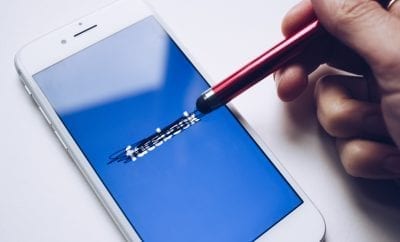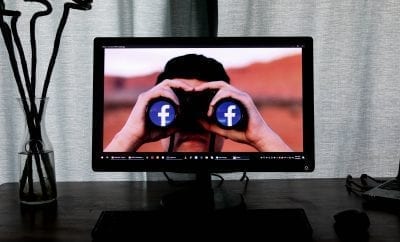News
Social Networking Saves a Life

The growing accessibility of the Internet via smartphones and computer tablets has sparked a discussion on NPR whether being so connected on the world-wide web affects the way we live.
It certainly has affected the quality of our lives. Some people can’t even leave their homes without their iPhones, fearing they will lose touch with their friends and be disconnected virtually if their apparatus is misplaced for just a few seconds. And many people can commiserate with this—the longer we are without our smartphones, the more our online presence diminishes.
You got to admit, this is a rather frightening and dysfunctional aspect of our culture—the more presence we have on the internet correlates to our actual presence in real time. Some may argue that we have lost our connectivity with actual living breathing beings to an invisible thing (yes, I am referring to the internet.)
According to NPR, Brian X. Chen examines in his new book, “Always On: How the iPhone Unlocked the Anything-Anywhere Future – and Locked Us In” (2011), what it means to have constant connectivity on the Internet, and how smartphone-based applications may eventually revolutionize the way we conduct our lives on-and offline.
This is certainly true for Deborah Copaken Kogan who recently posted on Slate how social networking saved her son’s life.
After a visit to the doctors office concerning her son, Leo’s bodily swelling (the doctor believed Leo was suffering from strep, also known as scarlet fever), Deborah snapped a couple photos to update her Facebook regarding her son’s status. This was after she commented to her husband about the fact that Leo resembled Eddie Murphy in “The Nutty Professor.”
Ten minutes later, Deborah received a phone call from Stephanie, a film actress and former neighbor, who told Kogan that her son Max “had the exact same symptoms and was hospitalized for Kawasaki disease, a rare and sometimes fatal auto-immune disorder that attacks the coronary arteries surrounding the heart.” Stephanie went on to inform Deborah that the longer she waits, the worse the damage will be.
Thirty-six comments later on Facebook, Deborah’s fears were confirmed. Beth, a pediatrician, echoed Stephanie’s diagnoses as well as Deborah’s cousin, Emily, a pediatric cardiologist who often had to deal with the fallout from untreated Kawasaki, expressed the urgency of the situation if Leo’s condition remained untreated and advised immediate hospitalization.
Today, Leo is treated and released for, first, Kawasaki disease and then the Kawasaki-triggered liver disease from which he is still recovering. According to Deborah’s post on Slate, “Facebook transformed from my son’s inadvertent lifesaver to the most valuable tool in my arsenal.”
Who knew Facebook, a social network from which some people have chose to voice the most mundane things in their life, like napping, or their acute level of fatigue – could, literally, be a lifesaver and be that life-changing.
To add to that, Chen, who also writes for Wired, says that some applications will soon revolutionize the ways doctors practice medicine and the ways patients interact with their physicians.
NPR reports that researchers at the University of Washington have taken the initial steps to create a digital contact lens that would monitor vital signs in real time and provide instantaneous feedback to physicians through wireless radio connections.
Until then, Facebook will have to suffice.
Kogan writes that she now feels in retrospection, “connected—profoundly connected—to the human race while living, breathing, eating and sleeping in the isolating, fluorescent-lit bubble of a children’s hospital ward,” and how she wishes that she could somehow offer this bit of solace to the people around her in the hospital, who are partitioned off in their own “bubbles” of fear, worry, and doubt. She hopes that if the opportunity arises, she could “befriend” these people and through the inter-connectivity that the internet provides, may somehow help alleviate their burden and pain.
Photo Courtesy of Deborah Kogan via Slate




0 comments